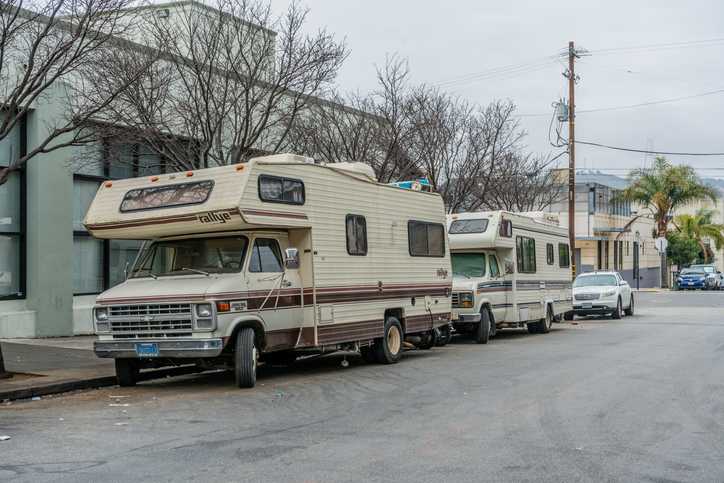RV encampments face new enforcement
June 12, 2025
A new proposal would limit oversized vehicle parking to two hours, with outreach and buyouts for residents.

A new proposal from Mayor Lurie would prohibit oversized vehicles like RVs from parking on city streets for more than two hours, while coupling enforcement with outreach, buyouts, and housing vouchers.
The Facts
Oversized vehicles like RVs will no longer be allowed to park on city streets for more than two hours, with exemptions limited to industrial zones. Before any enforcement, outreach workers will approach residents living in their vehicles and offer options— whether that's housing, shelter beds, or cash buyouts for surrendering their vehicles. Those who accept will qualify for a temporary permit, valid for up to six months, to give them time to transition.
The city is dedicating $12.9 million over two years: $8.2 million to create 65 new rapid-rehousing vouchers, $1.7 million for outreach services, and $3 million for enforcement and necessary signage. Up to 115 vehicles could be purchased under the buyout effort. The decision follows a street-by-street audit that counted over 500 oversized vehicles, including 437 inhabited ones.
The Context
RV living has surged 37 percent since 2022, even while tent encampments have dropped dramatically. But the lack of sanitation, proper restrooms, trash pickup, and clean water presents serious public health and safety hazards. Nearby residents report unsafe conditions, from exposed sewage to abandoned vehicles .
Previous RV-sheltering programs failed: the Bayview triage site drained over $15 million, housed fewer than 35 vehicles at a time, and closed this spring without making a lasting impact. RVs have been pushed around without a long-term plan, resulting in pop-up RV communities at various places around the city.
The GrowSF Take
Streets are not intended for long-term living. RVs should be parked in facilities with proper power delivery, trash services, and sewage treatment. We don't want these families and individuals to be displaced, but we can't accept unsanitary and unsafe street conditions. This new proposal, which pairs connection of services with enforcement, is the sensible approach.
Generate a Personalized Email to the Board of Supervisors
To:
Sign up for the GrowSF Report
Our weekly roundup of news & Insights